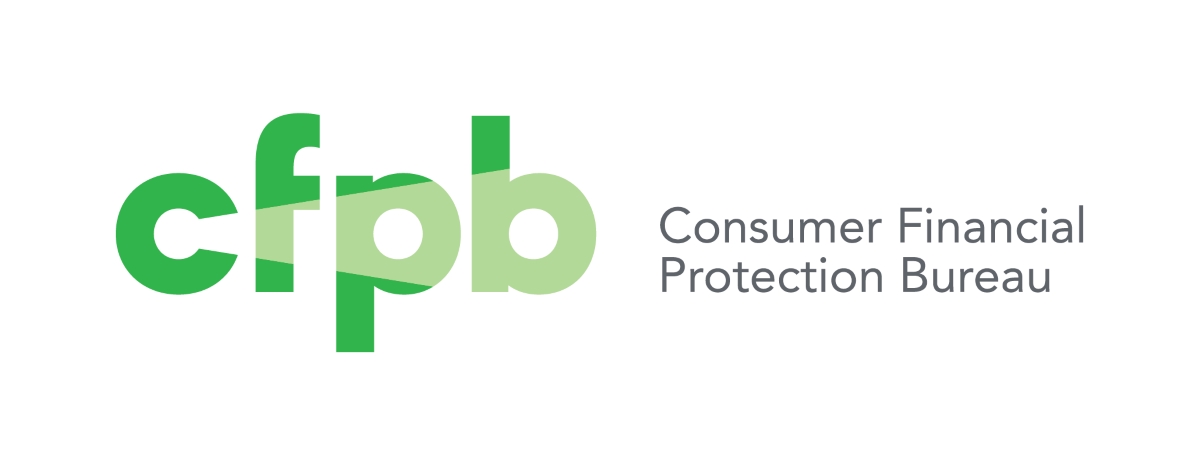Home>Finance>How Much Should I Borrow For A Student Loan According To The Consumer Financial Protection Bureau?


Finance
How Much Should I Borrow For A Student Loan According To The Consumer Financial Protection Bureau?
Modified: March 1, 2024
Find out the recommended student loan amount according to the Consumer Financial Protection Bureau. Get expert advice on managing finances and borrowing wisely.
(Many of the links in this article redirect to a specific reviewed product. Your purchase of these products through affiliate links helps to generate commission for LiveWell, at no extra cost. Learn more)
Table of Contents
- Introduction
- Understanding the Consumer Financial Protection Bureau
- Factors to Consider Before Borrowing for a Student Loan
- The Importance of Knowing Your Expected Monthly Payment
- How Much Should You Borrow? Guidelines from the Consumer Financial Protection Bureau
- Evaluating Repayment Options and Loan Terms
- Other Resources Available for Student Loan Borrowers
- Conclusion
Introduction
When it comes to financing higher education, many students rely on student loans to cover the costs. However, borrowing for a student loan is a major financial decision, and it’s important to understand the guidelines and recommendations set forth by the Consumer Financial Protection Bureau (CFPB).
The CFPB is a government agency that aims to protect consumers by promoting transparency and fairness in the financial marketplace. They provide valuable resources and information to help individuals make informed decisions when it comes to borrowing money, including student loans.
While the decision to take out a student loan is highly personal and dependent on individual circumstances, the CFPB has developed guidelines to help borrowers determine how much they should borrow. These guidelines consider factors such as the borrower’s expected monthly payment, repayment options, and loan terms.
In this article, we will delve into the recommendations provided by the CFPB and discuss the factors you should consider before borrowing for a student loan. By understanding these guidelines and evaluating your financial situation, you can make a more informed decision and take control of your student loan debt.
Understanding the Consumer Financial Protection Bureau
The Consumer Financial Protection Bureau (CFPB) is a government agency established under the Dodd-Frank Wall Street Reform and Consumer Protection Act in 2010. Its primary objective is to protect consumers in the financial marketplace and ensure fair treatment by financial institutions.
The CFPB provides a wide range of resources and tools to help consumers make informed financial decisions, including borrowing for higher education. They offer information on student loans, loan repayment options, and guidelines to determine how much borrowers should borrow.
One of the key roles of the CFPB is to promote transparency and provide clear information to consumers. They work to ensure that borrowers have access to fair and accurate information about loan terms, costs, and repayment options. Through their website, they provide educational materials, sample financial aid award letters, and loan calculators to help borrowers navigate the complexities of student loans.
Additionally, the CFPB advocates for stronger consumer protections and works with policymakers and stakeholders to improve the student loan landscape. They collaborate with other government agencies, colleges, and universities, as well as student loan servicers, to address the challenges faced by borrowers and promote responsible lending practices.
By understanding the role and function of the CFPB, borrowers can tap into the wealth of resources they offer. The information provided by the CFPB can help students and their families make informed decisions about borrowing for college and manage their loan obligations effectively.
Factors to Consider Before Borrowing for a Student Loan
Borrowing for a student loan is a significant financial decision that should not be taken lightly. Before you take the plunge into borrowing, it’s essential to consider certain factors that can affect your loan repayment journey. Here are some key factors to keep in mind:
- Evaluate your financial need: Assess your financial situation and determine how much you truly need to borrow. Consider tuition costs, living expenses, and other educational expenses. It’s important to strike a balance between borrowing enough to cover your expenses and borrowing an excessive amount that could lead to long-term debt.
- Explore scholarship and grant options: Before relying too heavily on student loans, explore scholarship and grant opportunities. These forms of financial aid do not require repayment, making them a preferable choice. Research and apply for scholarships that align with your academic achievements, extracurricular involvements, and personal background.
- Understand the types of loans available: Familiarize yourself with the different types of student loans available, such as federal loans and private loans. Each type has its own terms, conditions, and repayment options. Federal loans typically offer more borrower protections and flexibility, while private loans may have higher interest rates but can be a viable option for students who need additional funding.
- Consider your future earning potential: Think about your intended career path and projected income after graduation. Research the earning potential of your chosen field and evaluate whether it will be sufficient to comfortably repay your student loans. If your projected income is relatively low, you may need to reconsider the amount you borrow or explore income-driven repayment plans.
- Assess your repayment capabilities: Analyze your ability to repay the loans based on your current financial circumstances. Consider factors such as your monthly income, living expenses, and other financial obligations. It’s crucial to ensure that your expected loan payments fit within your budget without causing undue financial stress.
- Educate yourself about interest rates and loan terms: Understand how interest rates work and how they can impact your loan repayment. Different loans may have variable or fixed interest rates, and the terms of the loan can affect the total amount you’ll repay over time. Be sure to compare interest rates and loan terms to make an informed decision.
By carefully considering these factors before borrowing for a student loan, you can make a more informed decision about how much to borrow and choose the most suitable loan options for your financial situation. It’s important to take a proactive approach to your student loan borrowing to minimize the long-term impact on your finances.
The Importance of Knowing Your Expected Monthly Payment
When taking out a student loan, it’s crucial to have a clear understanding of your expected monthly payment. Knowing how much you’ll need to repay each month can help you plan your budget effectively and avoid financial strain in the future. Here’s why knowing your expected monthly payment is so important:
Budgeting: Your monthly payment will be a regular expense that you’ll need to incorporate into your budget. By knowing the exact amount, you can accurately plan your finances and allocate funds for loan repayment. This helps you avoid any surprises or financial strain that may arise if you haven’t budgeted adequately for your student loan payments.
Financial Stability: Understanding your monthly payment helps you assess your financial stability. If your monthly payment is too high compared to your income, it could indicate that you’ve borrowed more than you can comfortably afford to repay. In this case, it may be necessary to reconsider your borrowing amount or explore alternative repayment options, such as income-driven repayment plans.
Loan Affordability: Knowing your expected monthly payment allows you to evaluate whether your loan is affordable in relation to your income and other financial obligations. You want to ensure that your loan repayment doesn’t exceed a reasonable percentage of your monthly income, typically around 10-15%. If your monthly payment is disproportionately high, it could lead to financial hardship and potential default on your loan.
Loan Repayment Strategy: Being aware of your monthly payment helps you develop a strategy for paying off your loan effectively. You can evaluate options such as making extra payments to reduce the principal amount or refinancing your loan to secure more favorable terms. With a clear understanding of your monthly payment, you can develop a repayment plan that fits your financial goals and circumstances.
Calculation of Loan-to-Income Ratio: By knowing your expected monthly payment and your anticipated income after graduation, you can calculate your loan-to-income ratio. This ratio represents the percentage of your income that will go towards loan repayment. Lenders often use this ratio to assess your ability to handle your loan obligations. Keeping the loan-to-income ratio within a reasonable range is crucial for maintaining financial stability and avoiding overwhelming debt.
Overall, knowing your expected monthly payment is essential for effective financial planning and responsible borrowing. It allows you to accurately budget and assess whether your loan is affordable in relation to your income. By being proactive and informed about your loan repayment, you can better manage your financial obligations and take control of your student loan debt.
How Much Should You Borrow? Guidelines from the Consumer Financial Protection Bureau
When it comes to determining how much you should borrow for a student loan, the Consumer Financial Protection Bureau (CFPB) provides helpful guidelines to ensure responsible borrowing. These guidelines take into account the borrower’s expected monthly payment and aim to prevent excessive debt burdens. Here’s what the CFPB recommends:
1. Start with a manageable debt-to-income ratio: The CFPB suggests that a manageable debt-to-income ratio should not exceed 8% of your monthly gross income. This means that your monthly student loan payment should not be more than 8% of your monthly income. By adhering to this guideline, you can avoid taking on excessive debt that could strain your finances.
2. Consider your post-graduation income: When determining how much to borrow, it’s important to consider your expected income after graduation. The CFPB recommends that your total student loan debt should not exceed your expected annual starting salary. This guideline helps ensure that your debt remains manageable in relation to your income level.
3. Evaluate repayment options: The CFPB encourages borrowers to consider repayment options and loan terms when deciding how much to borrow. Federal student loans offer various repayment plans, including income-driven repayment plans that base monthly payments on a percentage of your income. This flexibility can help borrowers find a repayment plan that aligns with their financial capabilities.
4. Minimize borrowing for unnecessary expenses: The CFPB advises borrowers to borrow only what they need for education-related expenses. It’s important to avoid borrowing excess funds for non-essential items or excessive lifestyle choices. By being disciplined and borrowing only what is necessary, you can minimize your overall debt burden.
5. Research average student loan debt for your field: Conduct research on the average student loan debt for graduates in your field of study. This can help you gauge the typical borrowing amounts for your career path and make informed decisions about your own borrowing. It’s important to be aware of the debt load you may potentially carry and consider it in your financial planning.
While these guidelines from the CFPB provide useful recommendations, it’s important to remember that personal circumstances can vary greatly. It’s essential to consider your individual financial situation, future earning potential, and repayment abilities when determining how much to borrow. By being informed and responsible in your borrowing decisions, you can minimize the long-term impact of student loan debt on your financial well-being.
Evaluating Repayment Options and Loan Terms
When considering student loans, it’s crucial to evaluate the available repayment options and loan terms to ensure that they align with your financial goals and circumstances. Choosing the right repayment plan can significantly impact your ability to successfully repay your loan. Here are some factors to consider when evaluating repayment options and loan terms:
1. Standard Repayment Plan: This is the most common repayment option, where you make fixed monthly payments over a set period of time, typically 10 years. It’s important to assess whether the standard repayment plan fits within your budget and whether you can comfortably make the required payments.
2. Income-Driven Repayment Plans: Income-driven repayment plans (IDR) adjust your monthly payments based on your income and family size. These plans can be more flexible for borrowers with lower incomes, as monthly payments are set at a reasonable percentage of your discretionary income. It’s important to understand the specific requirements and potential implications of each IDR plan before selecting one.
3. Loan Forgiveness Programs: Some repayment plans offer loan forgiveness after a certain period of time, typically 20 or 25 years of consistent payments. Public Service Loan Forgiveness (PSLF) is a popular program that forgives remaining loan balances for eligible borrowers who work full-time for qualifying employers. Research and understand the eligibility criteria and requirements of loan forgiveness programs before opting for them.
4. Interest Rates: Take into account the interest rates offered by different lenders or loan programs. Federal student loans generally offer lower interest rates compared to private loans. Explore options for fixed or variable interest rates and consider how they may impact your overall loan repayment amount.
5. Loan Servicer: Consider the reputation and track record of the loan servicers associated with the loans you are considering. A loan servicer is responsible for collecting loan payments and managing your account. It’s important to choose a reputable servicer with a user-friendly online platform and responsive customer service to facilitate a smooth repayment experience.
6. Prepayment Penalties and Grace Periods: Check if there are any prepayment penalties or fees associated with early repayment of your loan. Additionally, understand the grace period, which is the time you have after graduating or leaving school before you need to start making loan payments. Knowing these details helps you plan your finances accordingly.
7. Borrower Protections: Familiarize yourself with the borrower protections provided by the loan program or lender. Some options include deferment or forbearance in case of financial hardship or the ability to temporarily pause or reduce loan payments.
Evaluating different repayment options and loan terms can be overwhelming. It’s important to conduct thorough research, consider your financial goals and circumstances, and seek advice from reputable financial aid counselors or loan advisors. By carefully assessing your options, you can choose the repayment plan and loan terms that best suit your needs and pave the way towards successful repayment and financial stability.
Other Resources Available for Student Loan Borrowers
When it comes to managing your student loans, it’s crucial to be aware of the various resources available to help you navigate the repayment process and make informed decisions. Here are some additional resources that can assist student loan borrowers:
1. Loan Servicer Assistance: Your loan servicer is a valuable resource for information and assistance. They can help you understand your repayment options, provide guidance on loan terms, and answer any questions you have regarding your student loans. Reach out to your loan servicer for personalized support and advice.
2. Financial Aid Offices: The financial aid offices at your college or university can provide valuable information and resources on student loans. They can guide you through the process of borrowing, explain different repayment options, and offer advice on managing your loans. Make use of the expertise available through your school’s financial aid office.
3. Federal Student Aid Website: The Federal Student Aid website, managed by the U.S. Department of Education, is an excellent resource for student borrowers. It offers comprehensive information on federal student loans, repayment plans, loan consolidation, loan forgiveness programs, and more. The website also provides financial calculators and tools to help you estimate loan payments and explore repayment options.
4. Online Loan Repayment Platforms: There are numerous online platforms available that can help you manage your student loans more efficiently. These platforms offer features such as loan account aggregation, payment reminders, and tools to analyze your repayment progress. They can also provide personalized recommendations for repayment strategies based on your financial situation.
5. Public Service Loan Forgiveness (PSLF) Help Tool: If you are considering the Public Service Loan Forgiveness (PSLF) program, the PSLF Help Tool offered by the U.S. Department of Education can be immensely helpful. This tool allows you to determine your eligibility for the program and provides step-by-step guidance on how to qualify for loan forgiveness.
6. Student Loan Counseling: Non-profit organizations and counseling agencies offer student loan counseling services, where experienced professionals can provide guidance on loan repayment, consolidation, and forgiveness programs. These counselors can help you understand your repayment options, develop a personalized plan, and navigate any challenges you may encounter during your loan repayment journey.
7. Financial Literacy Programs: Many organizations and financial institutions offer financial literacy programs specifically tailored to student loan borrowers. These programs provide educational resources, workshops, and tools to enhance your financial knowledge and empower you to make informed decisions about your student loans. Look for local workshops or online resources that can help you build your financial management skills.
By utilizing these resources, you can gain valuable insights, access expert guidance, and develop effective strategies to manage your student loans. Remember to stay informed about your options, continue to educate yourself about loan repayment, and stay proactive in managing your financial obligations. With the right information and resources, you can navigate your student loan journey with confidence.
Conclusion
When it comes to borrowing for a student loan, it’s important to approach the decision with careful consideration and utilize the available resources to make informed choices. The guidelines set forth by the Consumer Financial Protection Bureau (CFPB) offer valuable insights into responsible borrowing practices.
Before taking out a student loan, it’s crucial to evaluate factors such as your financial need, available scholarship and grant options, and the types of loans available. Additionally, considering your future earning potential, assessing your repayment capabilities, and understanding interest rates and loan terms are essential to making an informed decision.
The CFPB’s recommendation to start with a manageable debt-to-income ratio and ensure that your total student loan debt does not exceed your expected annual starting salary serves as a useful guideline. Evaluating repayment options and loan terms, considering loan forgiveness programs, and exploring resources provided by loan servicers, financial aid offices, and government websites can help borrowers navigate the complexities of the repayment process.
By being proactive in managing your student loans and utilizing the various resources available, you can set yourself on a path towards successful loan repayment and financial stability. Stay informed about your options, regularly review your repayment strategy, and seek assistance from reputable sources whenever needed.
Remember, responsible borrowing and effective loan management is not only about ensuring your own financial well-being, but also about upholding the integrity of the higher education system and the stability of the overall economy. By making sound financial decisions and taking control of your student loan debt, you can build a strong foundation for your future and achieve your academic and career aspirations without being burdened by excessive debt.














